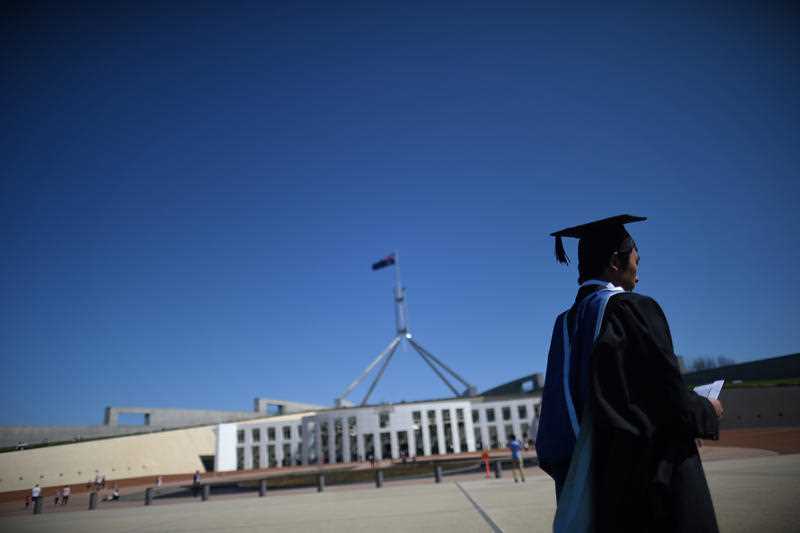Australian university graduates could face the biggest increase to their student debt in decades due to rising inflation.
But a federal parliamentary committee is examining a bill that would abolish indexation of student debts and raise the minimum income required to start loan repayments.
Australia’s higher education loan system is tied to inflation and increases in line with the consumer price index (CPI), currently at 7.8 per cent.
Greens senator Mehreen Faruqi introduced the bill, which would effectively freeze existing student debt for more than three million Australians.
In a joint submission to the committee, the National Union of Students and Foundation for Young Australians and Foundation for Young Australians said student debt had reached levels never seen before.
The submission said 72 per cent of people in 2021/22 owed more than $10,000 compared with 47.5 per cent in 2005/06.
“We are seeing greater numbers of students and graduates struggle to pay off the debts accrued in their study,” it said.
“In 2023, young university graduates will be the worst affected by the largest increase in student debt indexation in decades.”
Repayments for student loans become compulsory for people earning $48,361 and above.
But the Council of Australian Postgraduate Associations submissions recommends the minimum threshold for repayments be aligned with the national median annual salary.
It also recommends abolishing indexation in line with the CPI altogether or consider tying it to the wage price index instead.
The submission says higher education loans were initially established so compulsory repayments started once graduates’ education was reflected in their income, but decades of changes have steered away from this ethos.
“If inflation continues to outpace wage growth, the long-term consequences of aligning indexation to inflation will increase the number of graduates who will spend their entire lives repaying their student debt,” it said.
But Universities Australia chief executive Catriona Jackson said while struggling students needed help, changing the way loans were indexed would not make a difference to cost-of living pressures.
Ms Jackson said student debts were not like car loans or mortgage repayments which get bigger ever month.
“It’s true that because of CPI increasing your student loan debt will get bigger over time, but you won’t pay more now,” Ms Jackson told AAP.
“You won’t pay more in two weeks. You won’t pay more in a month. Your repayment period will just get longer … it’s important to understand that.”
By Maeve Bannister in Canberra



